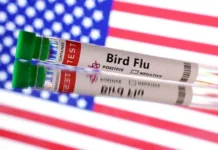Despites huge investment in the fight against the endemic, malaria is still a major public health issue in Nigeria, with an estimated 68 million cases and 194,000 deaths in 2021.
This is even as stakeholders, at a medical outreach, in commemoration of 2024 World Malaria Day, orgainsed by Westfield Development Initiative in partnership with Diya Fatimilehin and Co and Itire-Ikate Local Council Development Area (LCDA), in Lagos, have disclosed the reasons why Nigeria is yet to win the war against malaria, while profferiing the way forward.
The executive director, Westfield Development Initiative, Omolola Lana, told LEADERSHIP that malaria accounts for nearly 27 per cent of the global malaria burden, with Nigeria accounting for 26.6 per cent of malaria cases and 31.3 per cent of malaria-related deaths globally in 2021.
The reason for this is not far-fetched, Lana stated, even as she disclosed that the burden of malaria is a huge problem and there is no silver bullet to solving it. To start with, the executive director averred that poverty is a major cause, as many Nigerians live in environmentally unsafe areas.

“Living in places where there are water bodies that are not clean, mosquitoes will definitely come there to hatch their eggs. We have seen cases where families store water in tanks not covered, which serve as a breeding ground for mosquitoes. While it is a known fact that everyone cannot live in a safe environment, there is need to educate Nigerians on the need to keep their environment clean and store water properly,” she suggested.
Another challenge is the fact that majority of Nigerians do not sleep under the Long-lasting insecticidal nets (LLINs), a mosquito nets that are treated with an insecticide that lasts for up to three years or 20 washes. “To tackle this challenge, we had to come up with a project, where we monitored the people that were given the net to ensure that they sleep under it. By the end of six months, people got used to sleeping under the net. The result was that malaria cases drastically dropped in those communities. So, government must embark on massive awareness campaign to educate Nigerians on the importance of sleeping under the net,” she stated.
COVID-19 pandemic also derailed the fight against malaria, Lana stated, adding that, “There was a consistent fight against malaria before COVID-19, but immediately COVID surfaced, all resources were directed to the fight against the virus. Now that we have win the war against COVID-19, i call on donors, philanthropists and the government to renew the fight against malaria.”
Speaking on the medical outreach programme, Lana said, “the mission of Westfield Development Initiative is around reducing malaria across Nigeria. Today is world Malaria day, so this mission is in commemoration of World Malaria day 2024. We are bringing the idea to communities that people still die of Malaria. It is one of the number one causes of death among pregnant women and under-five children in Nigeria. One of the cost effective way of reducing malaria is to resource family with LLINs.
“As part of our services, we are not only bringing medical resources to the people, we are also distributing about 500 LLINs to families in Itire-Ikate community, so that they can safeguard themselves against malaria. We are not only hear to preach about malaria and ways of preventing it, we are also resourcing people with the tools they need to safeguard themselves against malaria.”
The medical officer of Health, Itire-Ikate LCDA, Dr. Olufemi Oyekan, said over 500 residents will be screened and treated for blood sugar, high blood pressure and malaria. Oyekan disclosed that the LCDA is malaria high risk community as it is the slum of surulere LGA, adding that one of the cost effective ways to tackle malaria endemic is for people to sleep under treated malaria net, to help curb the high prevalence of malaria cases in the community.
Meanwhile, residents of Itire-Ikate community however lauded this initiative, describing it as timely. For instance, a resident, Mr Tunde Osun, told LEADERSHIP that most of the community members cannot afford malaria treatment, adding that the malaria treated net, would go a long way in preventing malaria incident in the community.



